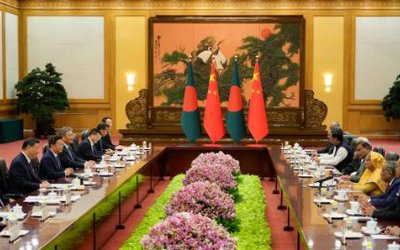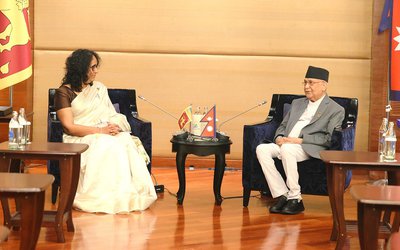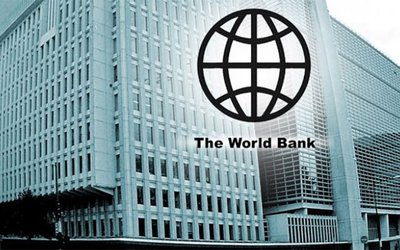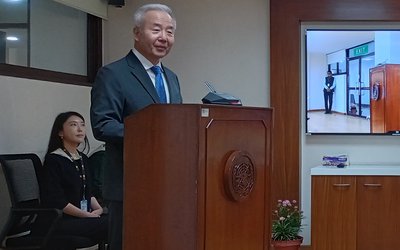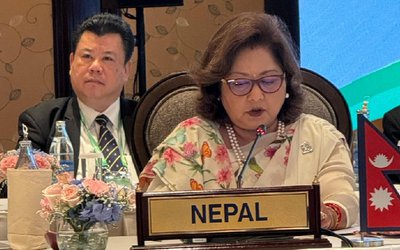
With foreign currency reserves depleting, Prime Minister Dr Lotay Tshering during his recent visit to Bumthang informed that the government could stop the import of non-essential items if the country’s economy does not improve.
The government even urged people to show solidarity to choose essential items over non-essentials.
The trade department has not drawn up lists of non-essential items as of now.
However, since April 2021, Bhutan has seen a decline in forex reserves because of surging imports, declining inflows of remittance, meagre earnings from export, and no earnings from tourism.
Import bills, meanwhile, are skyrocketing amid high commodity and fuel prices in the global market fueled by the Russian invasion of Ukraine.
Foreign currency reserve declined by over 30 percent to USD 970.4 million (M) as of December last year from USD 1.5 billion(B) in April. The reserve is only able to pay for 13.4 months of essential imports. The latest figure for this year is not available.
In a recent interview, finance minister Namgay Tshering, said that the country’s foreign currency reserve would meet 14 months of essential imports. This is only two months more than the constitutional requirement to maintain a minimum reserve to meet the cost of not less than one year’s essential import.
Many countries in the region are trying to restrict import of non-essential items to save foreign currency reserves. Nepal banned the import of luxury goods including automobiles, motorcycles with a capacity over 150cc, pricy mobile phones (above USD 300), whisky and tobacco, diamonds, television sets larger than 32 inches, toys, cards, and snacks.
The Nepali government also decided to introduce two public holidays – Saturday and Sunday to save consumption of petroleum products.
Bangladesh tightened its rules for luxury and non-essential imports like sports utility vehicles, washing machines, air conditioners, and refrigerators in May this year. By April end, Bangladesh’s foreign reserves was at around 44B, enough for a six-month import cover.
Pakistan lifted the ban on import of non-essential and luxury items last week. However, the ban on automobiles, mobile phones, and home appliances still remains. The government at one point urged people to reduce their consumption of tea to reduce import bills.
If Bhutan’s foreign currency reserves situation does not improve, the country has to ban the import of non-essential items, an economist said.
Bhutan imports more than 80 percent of its goods from India. Although Bhutan and India have an internal arrangement where Bhutan can borrow Indian Rupee through a standby credit facility, the country also sells convertible currency (USD) to replenish the Rupee stock.
Since 2008, the Bhutanese economy has been in a trade deficit. With the country’s import bills rising to Nu 90.2B in 2021, the trade deficit widened by 75 percent to Nu 32.2B from Nu 18.4B in 2020.
In the first six months of this year, Bhutan’s trade deficit was recorded at Nu 21.2B, more than the trade deficit of 2020. If Bhutan had not exported electricity to India during the period, the trade deficit could have increased to Nu 27.3B.
Bhutan imported fuel worth Nu 8.4B in 2021. In the first six months this year, Bhutan imported fuel worth Nu 3.4B.
Import of rice increased from Nu 2.4B in 2020 to 5.7B in the first six months this year.
The country imported vehicles, aircraft, and associated transport equipment worth Nu 6.3B in 2021. As of June, this year, the import bill was Nu 1.9B. Bhutan imported more than 5,000 vehicles between October 2021 and May 2022 – in less than seven months.
Meanwhile, Bhutan’s import of smartphones worth Nu 2.4B in 2021 increased to Nu 5.1B in the first six months of this year.
The finance ministry projected that the country’s trade deficit could widen from 7.1 percent in the fiscal year 2020-21 to 17.8 percent of the gross domestic product in the fiscal year 2021-22.
The economic affairs ministry, early this year, during the pandemic ensured the 30 listed essential items must be available in the economy.
Some of the items include liquified petroleum gas and fuel, industrial raw materials, and raw materials for hydropower construction.
- PM Oli Meets Myanmar Prime Minister Hlaing
- Apr 03, 2025
- Prime Minister Oli and Sri Lankan PM Amarasuriya hold meeting
- Apr 03, 2025
- Nepal's Economy Expected to Remain Resilient in Face of Economic Shocks, says World Bank
- Apr 03, 2025
- Japan And UNFPA Partner To Strengthen maternal and child health services in Nepal
- Apr 03, 2025
- BIMSTEC Should Uphold Spirit Of Regional Unity And Collective Cooperation: Minister Dr Rana
- Apr 03, 2025

